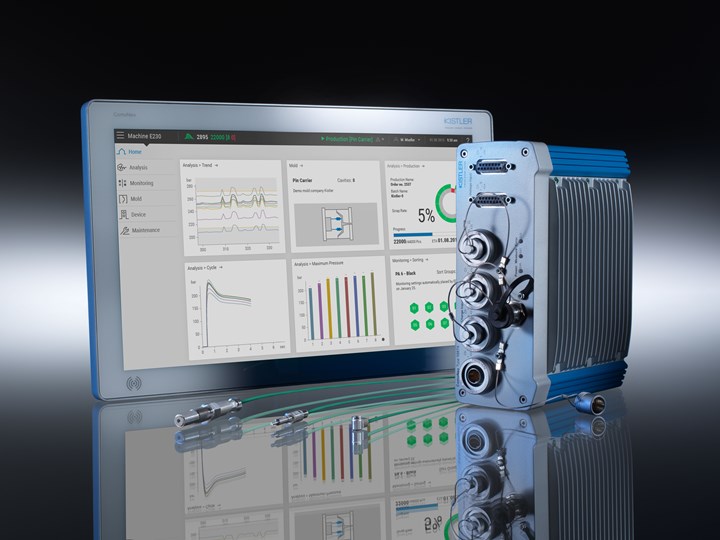Kistler Announces New Sales Representation in the Southeast
Kistler has appointed Fordham Plastics as its exclusive sales representative for all products in its Plastics and Advanced Manufacturing Business Units.
Injection molding process monitoring technology supplier Kistler Instrument Corp. (Novi, Mich.) has designated Fordham Plastics Equipment Corp. as its exclusive sales representative for injection molding and process monitoring systems to the southeastern U.S. Specifically Fordham will represent Kistler in Virginia, North Carolina, South Carolina, Georgia, Florida, Alabama, Mississippi and Tennessee.
To support customers, Fordham Plastics offers process consultation, process and equipment training and local field service. The company’s technology center, located in Gibsonville, N.C. is equipped with injection molding machines and offers equipment demonstrations, process development decoupled from manufacturing operations and hands-on training classes at all capabilities, from entry-level to experienced process technician and engineering levels.
In a release, the companies said that the southeast region has enjoyed substantial growth in technologically complex molding applications, but like the rest of the U.S. is challenged with a skills gap and labor shortage. “Kistler’s products and solutions enable molders to operate at peak performance even with less experienced personnel,” the release stated.

Kistler’s ComoNeo unit helps molders gather data and optimize processes.
Photo Credit: Kistler Group
Related Content
-
Back to Basics on Mold Venting (Part 1)
Here’s what you need to know to improve the quality of your parts and to protect your molds.
-
Process Monitoring or Production Monitoring — Why Not Both?
Molders looking to both monitor an injection molding process effectively and manage production can definitely do both with tools available today, but the question is how best to tackle these twin challenges.
-
Using Data to Pinpoint Cosmetic Defect Causes in Injection Molded Parts
Taking a step back and identifying the root cause of a cosmetic flaw can help molders focus on what corrective actions need to be taken.


